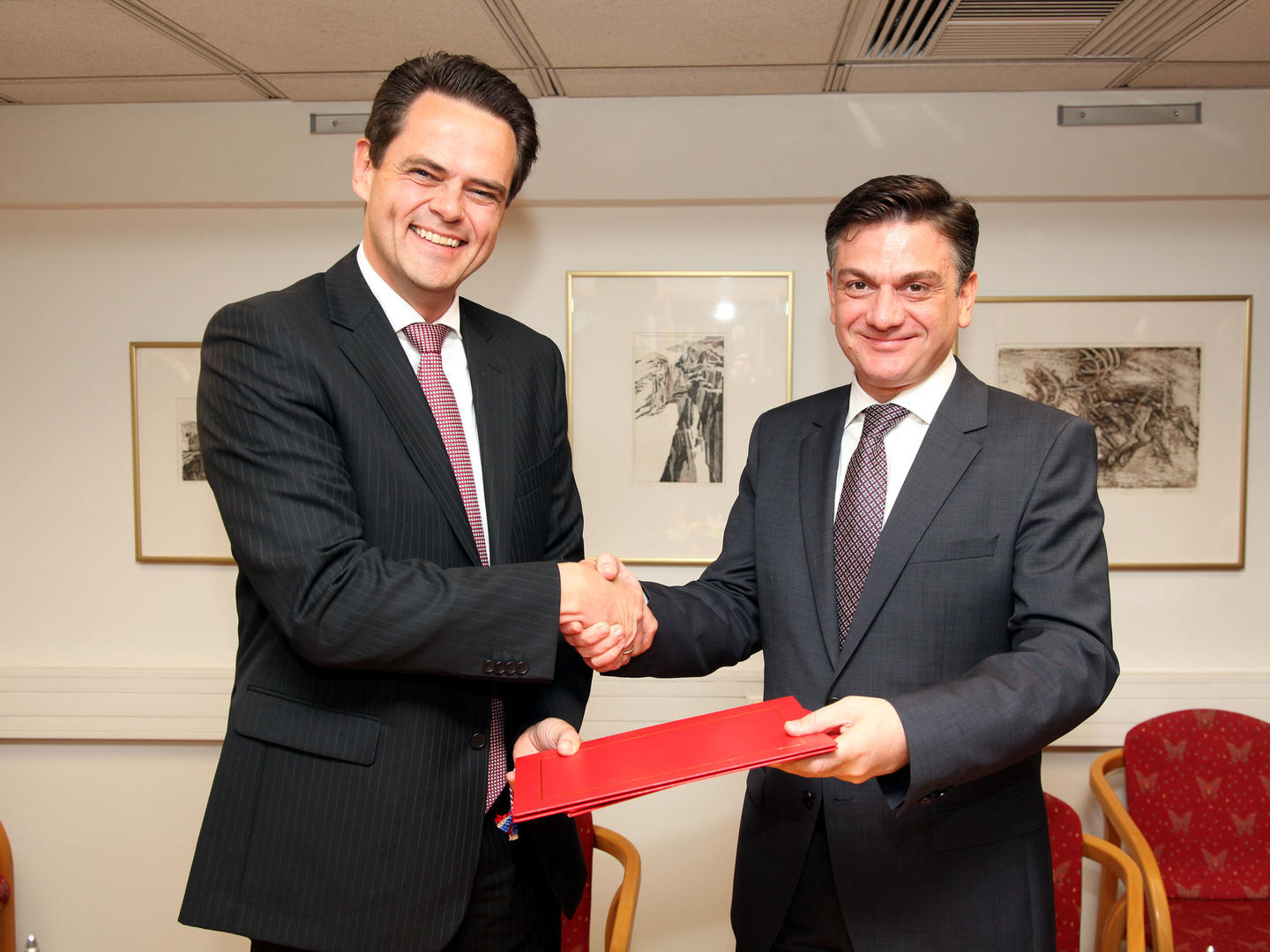Iceland, Liechtenstein and Norway have set aside €63.4 million to Greece in the 2009-14 funding period. A third of this support – €20.9 million – is dedicated to tackling asylum and migration issues according to the agreement signed in Athens today.
"Migration is a major challenge for Europe, and not least Greece. With the EEA Grants we can contribute to strengthen European cooperation on handling migrants and asylum seekers in the region. The reception of unaccompanied asylum-seeking children will be prioritised", says Norwegian Minister of Foreign Affairs Jonas Gahr Støre.
One of the two programmes on asylum and migration issues will address urgent needs for the reception and screening of new arrivals and for the accommodation of vulnerable groups. The programme will also ensure assistance to voluntary returns. Two projects are pre-defined involving the International Organisation for Migration (IOM) and the Office of the United Nations High Commissioner for Refugees (UNHCR).
The other programme will work to ensure the existence of a functioning national migration management system in Greece that safeguards the right to seek asylum and gives special attention to the situation for unaccompanied asylum-seeking children.
Both programmes will be carried out in close cooperation with the Norwegian Directorate of Immigration (UDI).
"It is important to assist Greek authorities in strengthening the quality and capacity of its asylum treatment and its reception centres. This also contributes to the optimal functioning of the Dublin system", says Norwegian Minister of Justice Knut Storberget.
The second major priority for the EEA Grants in Greece will be environment, with two different programmes receiving €19 million in support. One will be dedicated to strengthening marine and inland water management, and the other to increasing the share of renewable energy in Greece.
Greece will also receive funding to develop its civil society through a Fund for non-governmental organisations (€6.3 million). One of the priorities of this fund will be the Romani people. A research programme on cultural diversity, economic and gender-based inequality and questions related to social inclusion will also receive funding (3 million).
Photo: Norway's Ambassador to Greece, Sjur Larsen, and Greece's Deputy Minister of Development, Thanos Moraitis, signed the agreement on how to use the EEA Grants in Greece in the period to 2014.
Photo: Panagiotis Stolis
